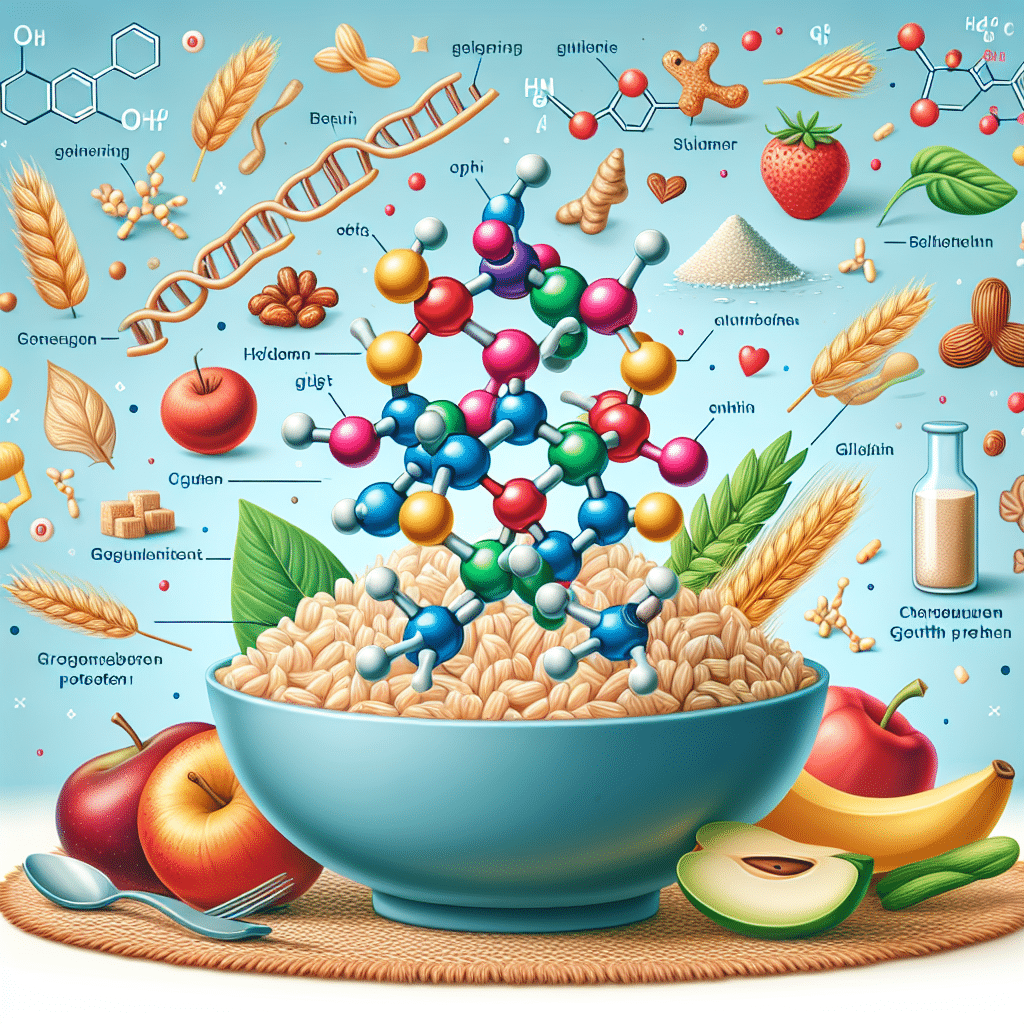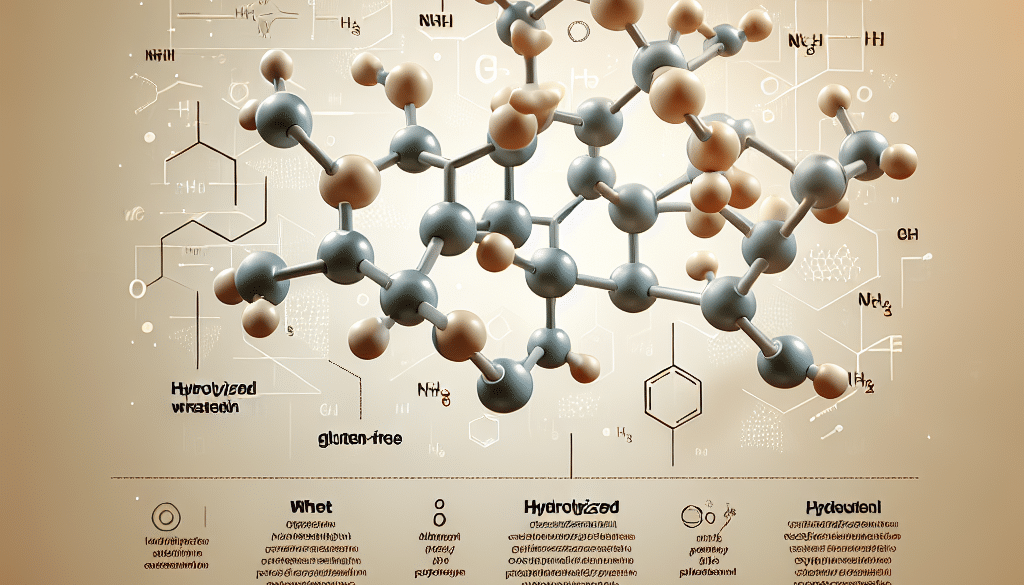Gluten-Free Query: Hydrolyzed Wheat Protein
-
Table of Contents
- Hydrolyzed Wheat Protein: A Gluten-Free Query Unraveled
- Understanding Hydrolyzed Wheat Protein
- The Gluten-Free Dilemma
- Is Hydrolyzed Wheat Protein Safe for a Gluten-Free Diet?
- Research and Case Studies
- Industry Use of Hydrolyzed Wheat Protein
- Alternatives to Hydrolyzed Wheat Protein
- Conclusion: Navigating Hydrolyzed Wheat Protein in a Gluten-Free World
- Discover ETprotein’s Gluten-Free Protein Products
Hydrolyzed Wheat Protein: A Gluten-Free Query Unraveled

For individuals with celiac disease or gluten sensitivity, navigating the world of food ingredients can be a complex task. One such ingredient that often raises questions is hydrolyzed wheat protein. This article delves into the nature of hydrolyzed wheat protein, its uses, and its implications for those on a gluten-free diet. We will explore scientific research, industry practices, and provide insights into how this ingredient fits into the gluten-free landscape.
Understanding Hydrolyzed Wheat Protein
Hydrolyzed wheat protein is derived from wheat, where the protein is broken down into smaller peptide chains through a process called hydrolysis. This process involves the use of water and enzymes or acids to break the bonds between amino acids. The result is a mixture of peptides and free amino acids that are more easily absorbed by the body.
The Gluten-Free Dilemma
For those with celiac disease, consuming gluten—a protein found in wheat, barley, and rye—triggers an immune response that damages the lining of the small intestine. This can lead to various health problems, from nutrient deficiencies to increased risk of certain cancers. Gluten sensitivity, while less severe, also necessitates the avoidance of gluten to prevent symptoms such as bloating, headaches, and fatigue.
Is Hydrolyzed Wheat Protein Safe for a Gluten-Free Diet?
The safety of hydrolyzed wheat protein for gluten-free individuals is a topic of debate. The hydrolysis process can reduce the gluten content, but it does not necessarily eliminate it. The degree of hydrolysis and the size of the remaining peptides determine whether the protein will trigger a reaction in those with celiac disease or gluten sensitivity.
- Regulatory Standards: Different countries have varying regulations regarding the gluten content in products labeled as gluten-free. For example, the United States Food and Drug Administration (FDA) requires that gluten-free products contain less than 20 parts per million (ppm) of gluten.
- Testing Limitations: Current testing methods may not always detect gluten in hydrolyzed products accurately, leading to potential mislabeling and health risks for consumers.
- Individual Sensitivity: The level of sensitivity to gluten varies among individuals. Some may tolerate hydrolyzed wheat protein with no adverse effects, while others may experience symptoms.
Research and Case Studies
Scientific studies have aimed to assess the safety of hydrolyzed wheat protein for those with gluten-related disorders. One study published in the Journal of Agricultural and Food Chemistry found that certain hydrolyzed wheat proteins could still elicit an immune response in individuals with celiac disease. However, other research suggests that extensively hydrolyzed proteins may be tolerated by some people with gluten sensitivity.
Case studies have also highlighted instances where individuals with celiac disease reacted to products containing hydrolyzed wheat protein, emphasizing the need for caution and further research.
Industry Use of Hydrolyzed Wheat Protein
Hydrolyzed wheat protein is commonly used in the food and cosmetic industries due to its functional properties:
- Food Industry: It serves as a flavor enhancer, texture improver, and protein source in various products, including sauces, soups, and meat alternatives.
- Cosmetic Industry: It is valued for its film-forming and moisture-retaining abilities in skincare and haircare products.
Despite its benefits, the presence of hydrolyzed wheat protein in products can pose a risk for those on a gluten-free diet.
Alternatives to Hydrolyzed Wheat Protein
For those seeking gluten-free options, there are alternatives to hydrolyzed wheat protein:
- Plant-Based Proteins: Proteins derived from peas, rice, and soy can provide similar benefits without the risk of gluten exposure.
- Animal-Based Proteins: Collagen, whey, and casein are options for those who are not vegan or vegetarian.
These alternatives are widely used in gluten-free products and can often be found in health food stores and specialty markets.
Conclusion: Navigating Hydrolyzed Wheat Protein in a Gluten-Free World
Hydrolyzed wheat protein presents a complex challenge for those on a gluten-free diet. While it offers functional benefits in various products, the potential for gluten exposure cannot be overlooked. Individuals with celiac disease or gluten sensitivity should approach products containing hydrolyzed wheat protein with caution, and manufacturers should strive for transparency and rigorous testing to ensure safety. As research continues to evolve, so too will our understanding of how hydrolyzed wheat protein fits into the gluten-free equation.
Discover ETprotein’s Gluten-Free Protein Products
If you’re looking for reliable gluten-free protein sources, ETprotein offers a range of plant-based protein products that cater to your dietary needs. Their selection includes organic rice protein, pea protein, and other seed-based proteins that are non-GMO and allergen-free. These high-quality proteins are ideal for various applications, from sports nutrition to health and wellness products.
ETprotein’s commitment to quality and customer satisfaction makes them a top choice for those seeking gluten-free protein solutions. To explore their offerings and learn more about how they can support your gluten-free lifestyle, contact ETprotein today.
About ETprotein:
ETprotein, a reputable plant protein vegan protein Chinese factory manufacturer and supplier, is renowned for producing, stocking, exporting, and delivering the highest quality organic bulk vegan protein and plant proteins. They include Organic rice protein, clear rice protein, pea protein, clear pea protein, watermelon seed protein, pumpkin seed protein, sunflower seed protein, mung bean protein, peanut protein etc. Their offerings, characterized by a neutral taste, non-GMO, allergen-free attributes, cater to a diverse range of industries. They serve nutraceutical, pharmaceutical, cosmeceutical, veterinary, as well as food and beverage finished product distributors, traders, and manufacturers across Europe, USA, Canada, Australia, Thailand, Japan, Korea, Brazil, and Chile, among others.
ETprotein specialization includes exporting and delivering tailor-made protein powder and finished nutritional supplements. Their extensive product range covers sectors like Food and Beverage, Sports Nutrition, Weight Management, Dietary Supplements, Health and Wellness Products, and Infant Formula, ensuring comprehensive solutions to meet all your protein needs.
As a trusted company by leading global food and beverage brands and Fortune 500 companies, ETprotein reinforces China’s reputation in the global arena. For more information or to sample their products, please contact them and email sales(at)ETprotein.com today.














